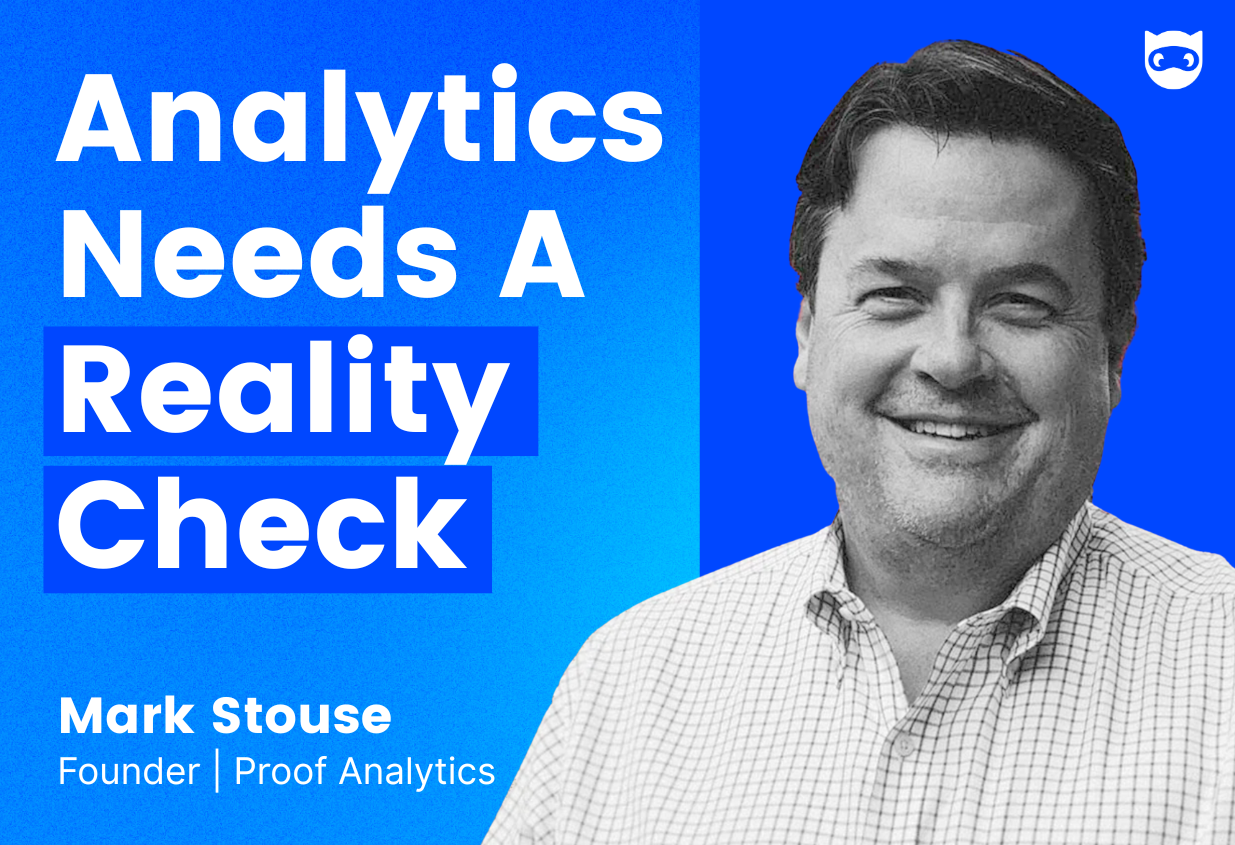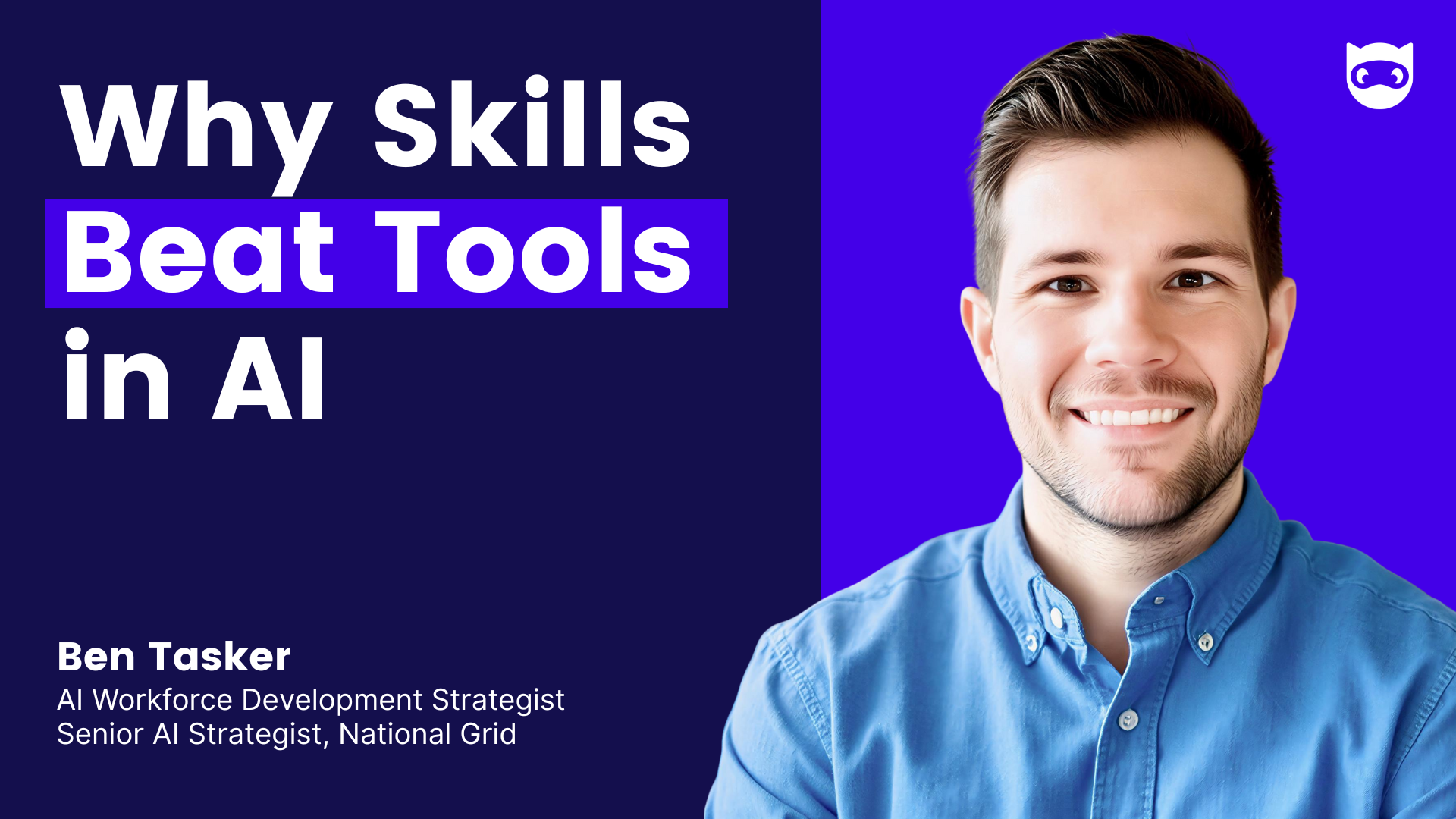Make Better Bets with Causal AI

Is your analytics setup telling you yesterday’s truths while you’re making tomorrow’s decisions?
Most marketing leaders still lean on last‑century models to defend their budgets—think Marketing Mix Modeling (MMM) reports that drop twice a year and arrive already obsolete.
Mark Stouse has spent 25 years blowing up that status quo. In our latest What Gets Measured podcast conversation, he lays out why causal AI is an analytics approach that keeps pace with today’s volatility—and what it means for CMOs, CFOs, and everyone who has to prove value.
Marketing Mix Modeling Is Stuck in Time
Traditional marketing mix modeling (MMM) has always struggled with latency. MMM’s mega‑models used to feel rigorous, but they’re built on slow consultant cycles and historical averages. By the time a recalculated model lands on your desk, six months have passed—and the world looks nothing like the data set you paid for.
“Past is not prologue—especially in a high‑velocity market,” Mark notes.
Outcome: MMM becomes a CYA exercise, not a decision engine. Before doubling down on your existing methods, admit their limitations. True insights demand a faster feedback loop.
Correlation ≠ Causation—And That’s a Problem
Most marketers have jumped into Gen AI and machine learning, dazzled by their ability to find patterns quickly. But these methods stumble precisely where marketers need them most: causality—the crucial "why" behind your metrics.
“Machine learning is excellent at correlation,” Mark explains, “but it cannot reliably infer causation. Causal AI bridges that gap, combining real-time pattern recognition with genuine causal insights.” Understanding this critical difference in marketing data strategy ensures you're using the right tool to make decisions.
Regression to the mean flattens nuance. Great for autocomplete; lousy for board‑level bets.
Causal AI operates on different math: causal inference, not just statistical association. It can test counterfactuals (what-if scenarios), flag bad data, and trace actual drivers of outcomes — helping CMOs avoid false positives and stay aligned with business goals.
Causal AI: A GPS for Enterprise Decisions
Built on causal‑inference math—pioneered by Turing Award winner Judea Pearl— causal AI continually recalculates like Waze rerouting around a pile‑up. For example, if a marketing campaign suddenly underperforms due to unexpected market shifts, causal AI immediately identifies the true cause and suggests a new direction, rather than leaving you guessing or relying on outdated marketing data models.
It surfaces counterfactuals—What if we cut spend here?—so leaders can steer before the quarter blows up.
Key traits:
- Always on: Models refresh continuously, not biannually.
- Counterfactuals: Test what‑ifs before you commit spend.
- Red‑flag data drift: Dirty inputs get flagged fast.
Dirty Data, Dirty Decisions
Data quality is still marketers' Achilles' heel. Research shows only 3–7% of enterprise data is reliable enough for decision-making.
“I was a witness in a CRM fraud case,” Mark shares. “Fourteen years of sales data — and two-thirds was found to be highly engineered. Individual reps tweaking numbers to hit quota and forgetting they ever did it.”
But here’s the upside: causal systems surface what’s clean and flag what’s broken. They don’t just automate; they audit.
“It’s like having a lie detector in your analytics stack. Bad patterns don’t pass the test,” Mark says.
Probabilistic Beats Deterministic—Every Time
Many marketing strategies have mistakenly pursued deterministic outcomes—expecting predictable, repeatable results from complex, dynamic systems. According to Mark, “The future belongs to probabilistic thinkers, not deterministic dreamers.” Marketing should be treated more like poker, placing smart bets based on evolving conditions rather than outdated playbooks.
It’s time to shift your thinking from certainty to probability. Embrace uncertainty, and use causal AI to navigate your decisions with informed agility.
Causal AI is powerful, providing insights faster and more reliably than ever before. But Mark reminds us this newfound clarity demands strategic action. "Use your improved insights to make smarter bets," he advises. “Don’t just collect data. Use it to proactively steer your strategies in real-time."
This is where marketers can truly differentiate—not in generating endless reports, but in using insights to drive meaningful, strategic change.
Connect with Mark on LinkedIn or dive deeper in his Substack.
LISTEN TO THE FULL SHOW -> Stay tuned, stay curious and subscribe to What Gets Measured on Apple Podcasts, Spotify, YouTube or add it as a Favorite on your podcast player of choice.







.png)